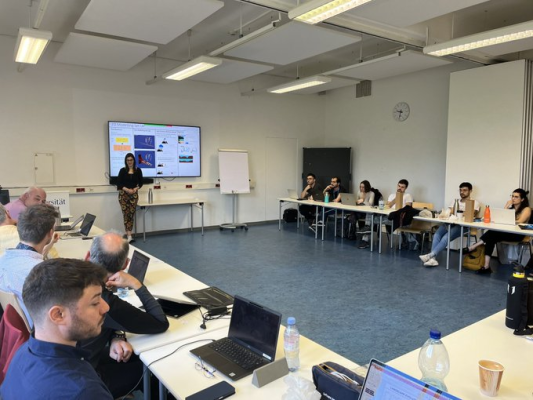The Supervisory Board Meeting Highlights Success and Progress of ESRs during EGU Week in Vienna
28 Apr 2023

Vienna, April 25th, 2023 – The eagerly anticipated Supervisory Board Meeting of the ITN S2S-Future took place on April 25th at the European Geosciences Union (EGU) week in Vienna. The event brought together the promising Early Stage Researchers (ESRs) in their 3rd year of their PhD journey, who had the opportunity to showcase their project progress and future plans before an esteemed audience comprising Principal Investigators (PIs) and external committee members.
The gathering, marked by enthusiasm and scholarly ambition, provided a platform for the ESRs to present their groundbreaking research projects, which spanned various domains of geoscience. The meeting served as a significant milestone in their academic journeys, highlighting the significant strides they have made in their respective fields.
Under the watchful guidance of the PIs and external committee members, the ESRs delivered insightful presentations that showcased their research findings, methodologies, and potential implications. The Supervisory Board Meeting served as a valuable opportunity for the ESRs to receive constructive feedback and guidance from their mentors and external committee members, who are distinguished experts in their fields. The mentorship and guidance provided at this stage of their doctoral studies play a crucial role in shaping the trajectory of their research and ensuring its impact on the scientific community and society at large.



